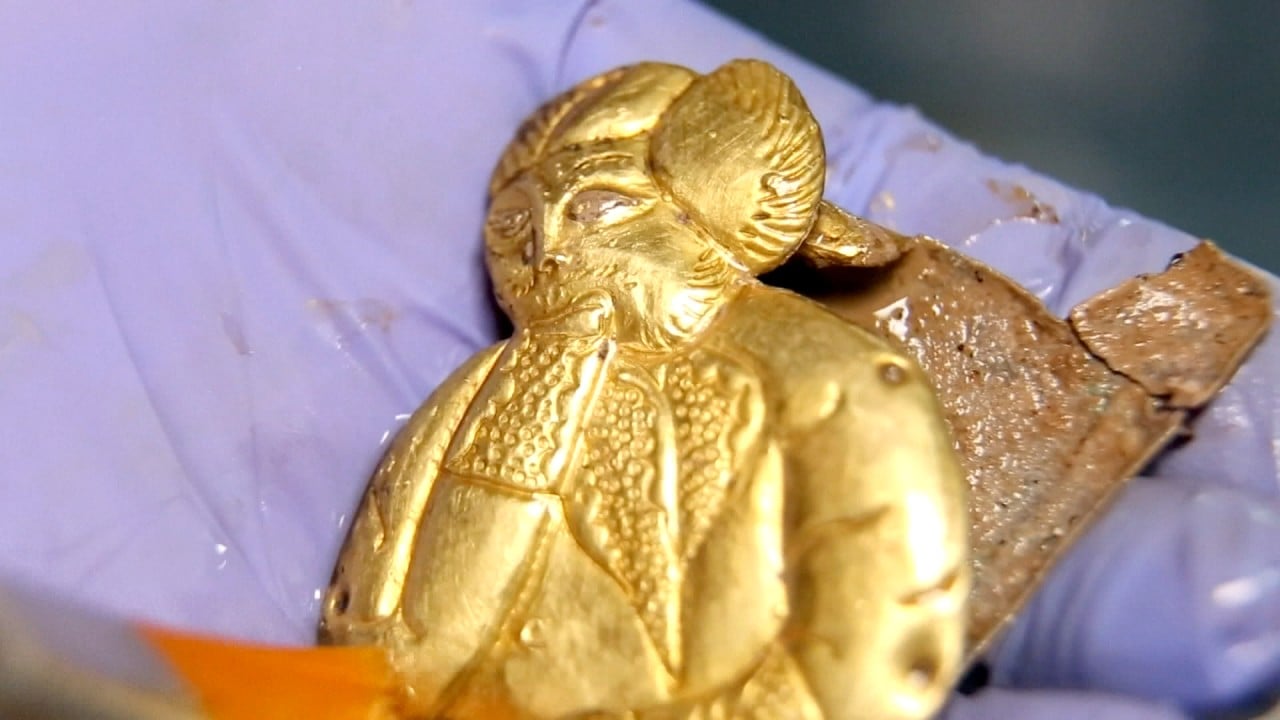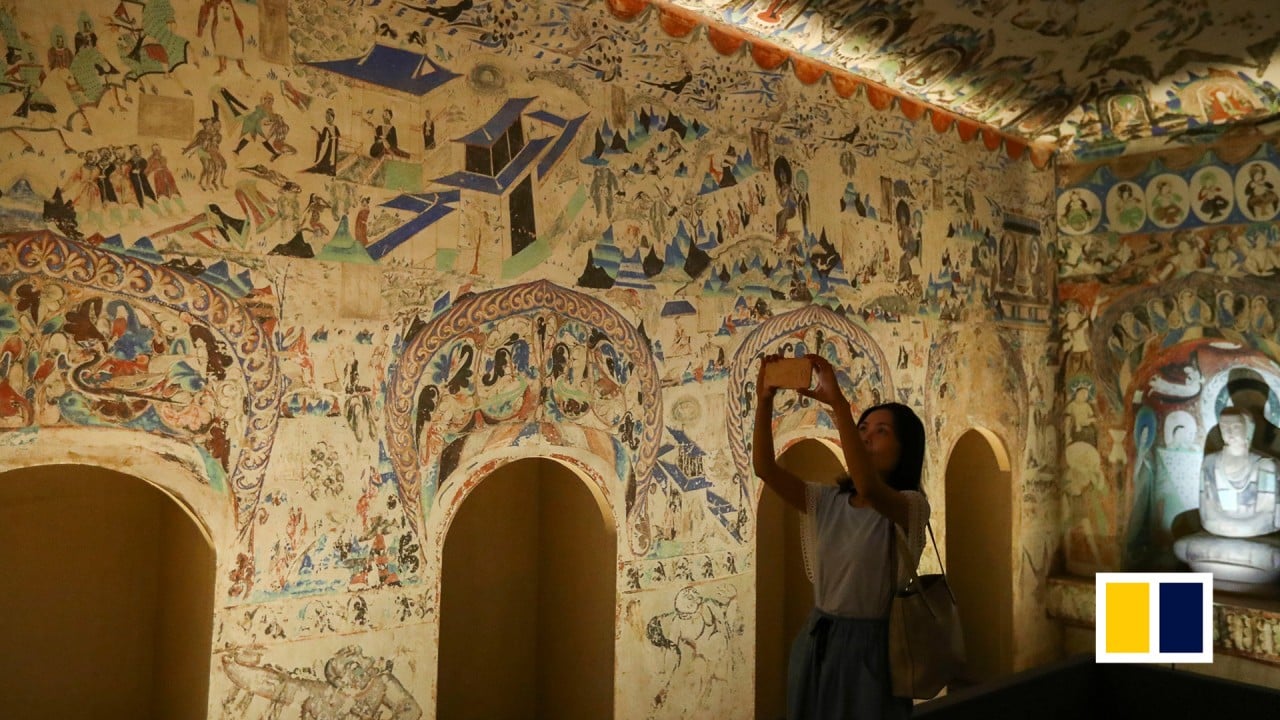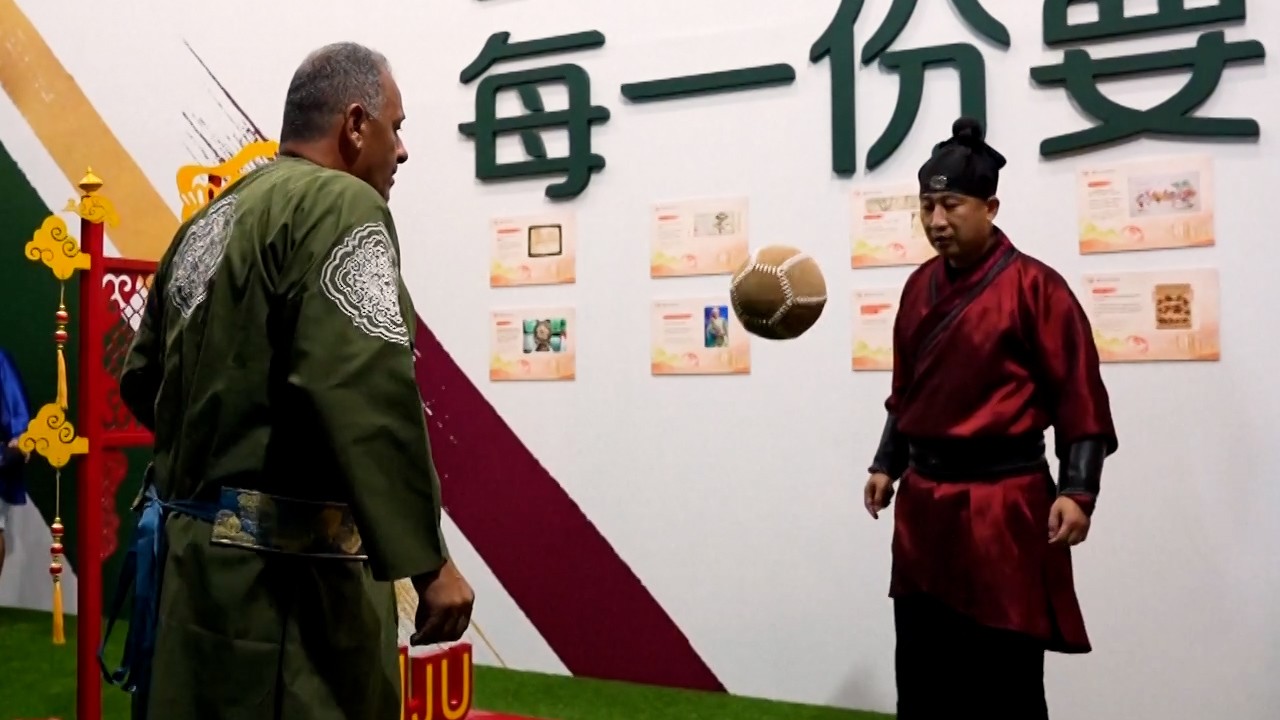
How China’s Xi Jinping promotes mix of Marxism and traditional culture to further Communist Party and ‘Chinese dream’
- Traditional Chinese culture has made a comeback amid rising nationalism as Beijing and Washington are mired in intense strategic competition
- Xi speaks of ‘common aspirations’, rather than human rights of ‘peace, development, equity, justice, democracy and freedom, says analyst
The visits were capped off by the symposium this month, where Xi emphasised the need to boost confidence in China’s history and culture. The Chinese civilisation was “the only uninterrupted one in the world”, Xi said.
He said cultural inheritance, innovation and development remained key factors for China to grow into a global cultural powerhouse.
The remarks come as China’s post-pandemic economic recovery loses momentum and while risks to political stability are mounting amid a narrative war against the US-led West.
Ideological legitimacy
“Xi has been making an effort to reconstitute the party’s ideology system by combining Marxism with traditional Chinese culture,” said Chen Daoyin, an independent political scientist and former Shanghai-based professor.
“With this landmark project, Xi tries to increase people’s sense of identity, improve their recognition of [the] ‘Chinese dream’ and [the world as] ‘a community of shared destiny for mankind’, and defend the ideological legitimacy of the party,” Chen said.
In 2014, Xi spoke at the International Conference in Commemoration of the 2,565th Anniversary of Confucius’ Birth, noting that Confucianism could provide a solution for world peace and development. It was the first time as president he had publicly shed light on his thoughts about culture.
The “four matters of confidence” doctrine that has been added to the party’s constitution calls for party members, government officials, and the Chinese people to be “confident in our chosen path, confident in our guiding theories, confident in our political system, and confident in our culture”.
In 2021, at the ceremony marking the party’s centenary, Xi called for the integration of the basic tenets of Marxism with China’s fine traditional culture, which was later hailed by the party as an ideological emancipation.
Cultural security
The party has been critical to traditional Chinese culture. It cracked down on what Beijing saw as symbols of China’s imperial past, or “feudalism”, soon after the founding of the People’s Republic of China and during the Cultural Revolution havoc in the decade to 1976.
Western culture and lifestyles began to influence mainland Chinese with China’s launch of its reform and opening-up policy. Traditional Chinese culture has only made a comeback in recent years amid rising nationalism as Beijing and Washington are mired in an intense strategic competition.
Xi, who took the helm of the party in 2012, elevated culture work to the level of security as he turned national security into a key paradigm that permeates all aspects of China’s governance. Under the umbrella of “comprehensive national security” that was introduced in 2014, there are 16 types of security covering aspects from politics, economy, defence, culture and ecology to cyberspace.
“Cultural security concerns the ability for a culture to survive, develop and keep safe. Culture is the soul of a nation and crucial to social stability, a country’s soft power and the discourse competition in global affairs,” wrote Yan Xu, a scholar with the China People’s Liberation Army National Defence University, in an article published last year in People’s Daily, the party’s mouthpiece.
Interaction with Western culture
According to a People’s Daily editorial last week, although Marxism and traditional Chinese culture have different sources, there are great similarities.
These include the idea that the whole world is one community; people are the foundation of the state; exercising the government by means of virtue; appointing people on their merits; emphasising self-discipline and social commitment; cementing peaceful relations by upholding good faith; and that a person should get on well with one’s neighbours, according to the article.
Zheng Yongnian, presidential chair professor at the Chinese University of Hong Kong, Shenzhen, said China contributed to the world’s modernisation through technological inventions, introducing a political system separate from religion and business, and by exporting its thoughts and philosophies.
“The Chinese-style modernisation can only succeed when it is in line with its civilisation, culture and situation,” Zheng said at the forum in Shenzhen last week. “Anyway, China will not impose its model of modernisation on other countries.”
Global Civilisation Initiative
The initiative was announced by Xi in his March 15 keynote speech to the Communist Party High-Level Dialogue with World Political Parties. It called for respecting the diversity of civilisations, advocating the common values of humanity, valuing the inheritance and innovation of civilisations, and strengthening international people-to-people exchanges and cooperation.
R. Evan Ellis, a research professor in Latin American studies at the US Army War College Strategic Studies Institute, said China’s GCI sat alongside its Global Development Initiative (GDI) and Global Security Initiative (GSI) as “complementary, if amorphous, concepts in the ‘Community of Common Destiny’”.
“Xi and the Chinese Communist Party were advancing the initiatives as Beijing’s alternative to the Western-dominated ‘rules-based international order’,” Ellis wrote on The Diplomat website on June 1.
Ellis said the appeal of the GCI lay in its ambiguity – that Xi spoke of “common aspirations”, rather than human rights of “peace, development, equity, justice, democracy and freedom”.
“At the same time, the GCI advocates against a world in which those concepts can have meaning through united efforts to call out and collectively act against those who violate them. Under the GCI, perceptions of such ‘common aspirations’ are ‘relative’ and thus countries must ‘refrain from imposing their own values or models on others’,” Ellis wrote.
Long-term strategy
Mei Xinyu, a researcher with China’s Ministry of Commerce, said the culture strategy was not a short-term solution for social problems or external headwinds. Instead, it was a long-term answer as China was challenged by “strong Western cultures”.
Increasing cultural confidence was a solution to improve cohesion inside and develop soft power amid cultural competition with the West, Mei said.




